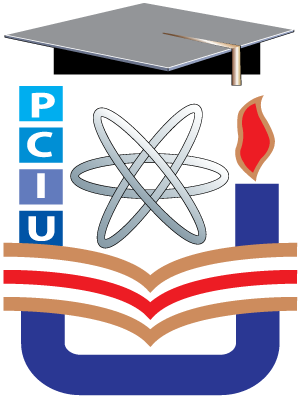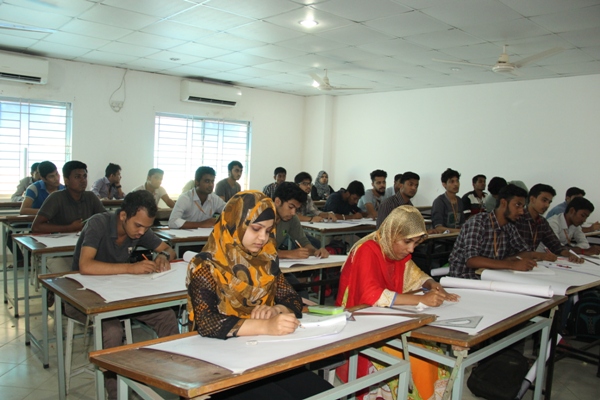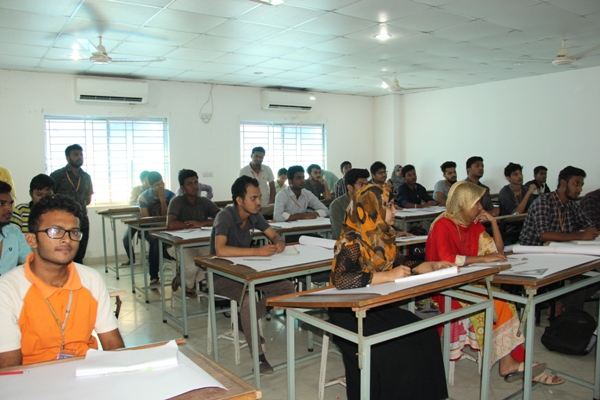Lab Facilities for Department Of Civil Engineering Students
Ever since its inception, the Civil Engineering department has realized the importance of in-house laboratories and has given priority to develop the necessary facilities. As a result, PCIU became one of the private university in Bangladesh to provide complete in-house laboratory facilities in all branches of Civil Engineering. Some of the experiments performed in these laboratories have been developed within the department itself. PCIU Department Of Civil Engineering have Engineering Materials Lab, Fluid Mechanics Lab, Surveying Lab, Transportation Engineering Lab, Structural Mechanics Lab, Geotechnical Engineering Lab, Environmental Engineering Lab, Engineering Drawing Lab, Open Channel Flow Lab, Irrigation & Flood Control Lab.Civil engineering is considered as the oldest and the most classical form of engineering education, covering diverse elds. The main objective of the Department of Civil Engineering (CEN) at PCIU is to provide and equip students with the highest level of technical competencies, social responsibility, leadership and lifelong learning skills for successful careers in civil engineering.
Engineering Materials Lab
In order to design and construct safe, economic structures, engineers must stay up-to-date with the latest methods of structural analysis, new structural modeling concepts for computation, advanced structural design, and structural material technology. The Engineering Materials laboratory provides comprehensive modern facilities for research and teaching in structural engineering, solid mechanics and construction materials.
In Civil Engineering, materials used for structure such as cement, fine aggregate, coarse aggregate etc. have the foremost importance to ensure the quality of the structure. For getting assurance about the good quality of the structure different laboratory tests are needed to be performed. This Lab manual mainly deals with the common and universal laboratory tests of different types of construction materials. Normal consistency and initial setting time determination of cement; compressive strength of cement mortar; sieve analysis of fine and coarse aggregate; specific gravity and absorption capacity of fine and coarse aggregate; compressive strength of concrete; sampling and testing of brick; are described according to ASTM (American Standards for Testing Materials) standards.
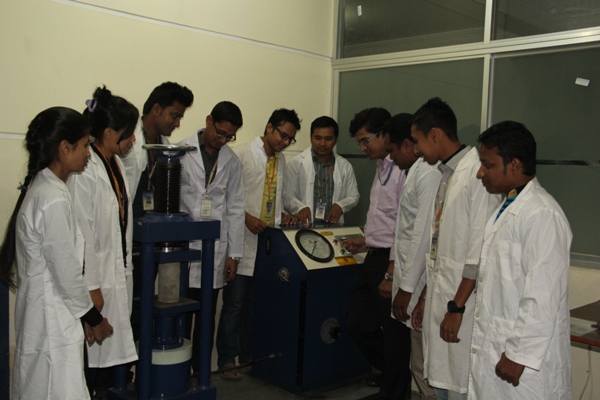
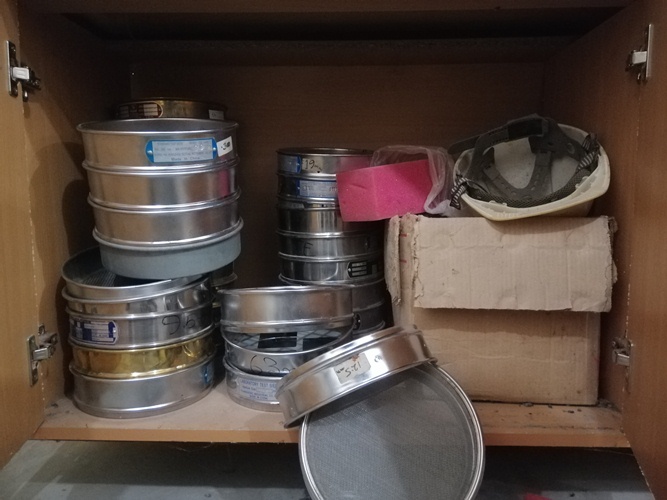
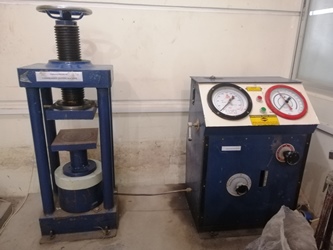
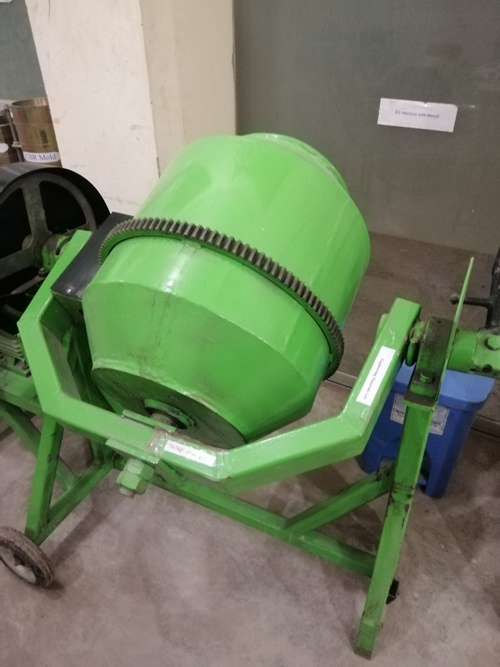
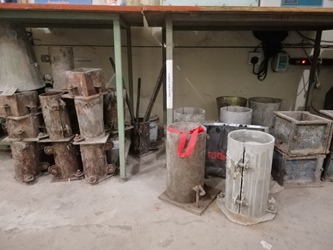
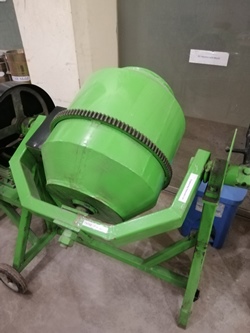
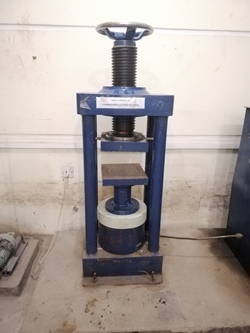
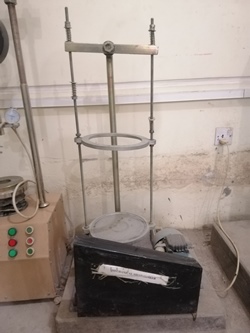
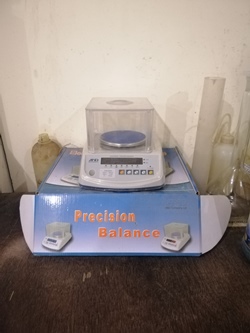
Geotechnical Engineering Lab
The Geotechnical Engineering Laboratory of Port City International University is equipped with all modern machineries required for advanced research and consultancy services. All the equipments mentioned in the syllabus content of the undergraduate programme can be carried out in the laboratory. The primary aim of Geotechnical Lab is to advance the theory and application of soil mechanics. This laboratory provides both students and faculty members with excellent opportunity to conduct quality research. It is housed in the ground floor of the Academic Building B. Moreover, it mainly deals with the common and standard laboratory tests on different types of soil. To obtain different properties of soil, laboratory tests are performed on collected disturbed and undisturbed soil samples, while field tests are performed on sub-soil at in-situ condition following mainly standard ASTM methods. Field identification tests of soil and laboratory tests like- grain size analysis by sieve and hydrometer tests, specific gravity test, moisture content determination test, organic content determination test, Atterberg’s limits test, compaction test, relative density test and direct shear test may be performed on collected disturbed soil samples, whereas permeability test, unconfined compression test, consolidation test and triaxial test may be performed on collected undisturbed soil samples according to ASTM (American Standards for Testing Materials) methods. In the hydrometer test, the equipments are used to test the soil to determining the fine grained soils contents such as clay particles in a given soil specimen. The Liquid Limit and Plastic Limit Test apparatus allows measurement liquid limit and plastic limit of a given soil specimen by conducting test using Casagrande Liquid Limit Device, Tools, Glass Plate, Cans, Spatula and Oven. To determine the unconfined compression strength of soil and shear strength of sand and determination of angle of friction, unconfined compression and direct shear test machine are used respectively.

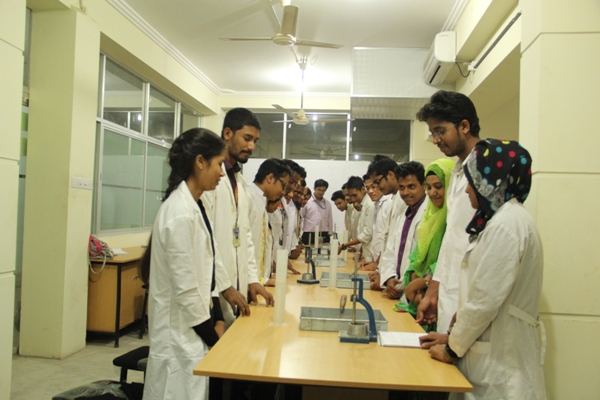
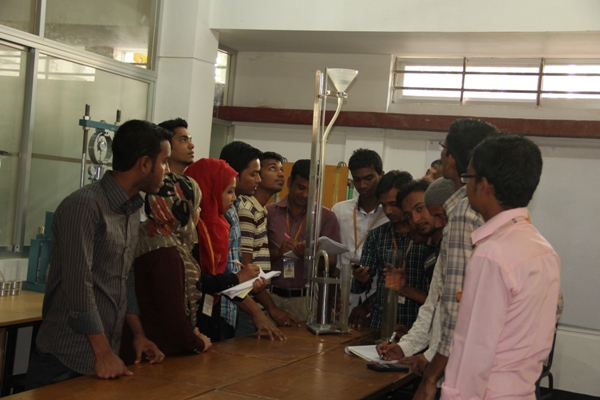




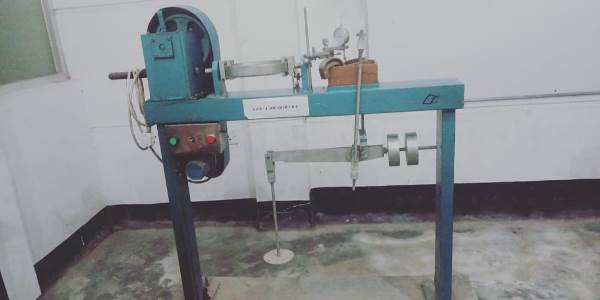
Fluid Mechanics Lab
The fluid mechanics laboratory is situated on the ground floor of the C-building covers an area of 1500 sq. ft. which is used for various multidisciplinary experimental work. The objective of this laboratory is to determine the various parameters related to fluid flow in pipes and in open channels. At present it is well equipped with hydraulic bench, fluid friction apparatus, centre of pressure apparatus, weir, notch, venturimeter, Bernoulli’s apparatus to carry out experiments like determination of centre of pressure for a floating body, verification of the Bernoulli’s energy equation, determination of coefficient of discharge for obstruction flow meter(venturimeter/orifice meter/mouthpiece),determination of discharge coefficient for various notches, determination of hydraulic coefficients for flow through an orifice, determination of friction coefficient for pipes of various diameters and calculation of minor head losses in pipes.
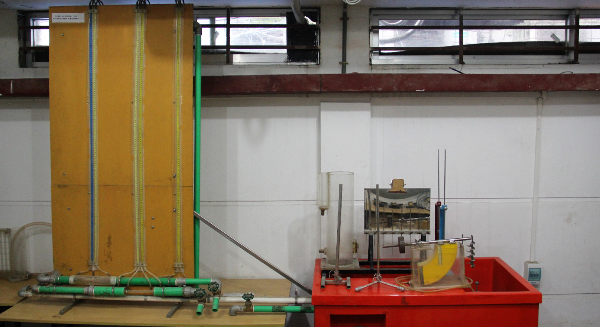
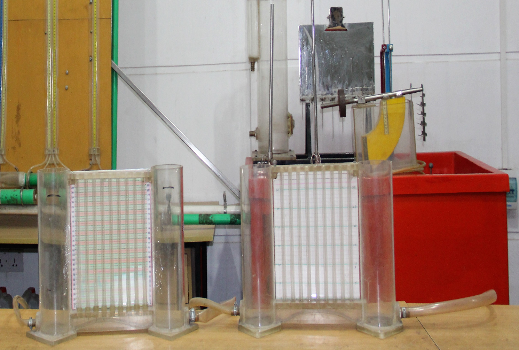
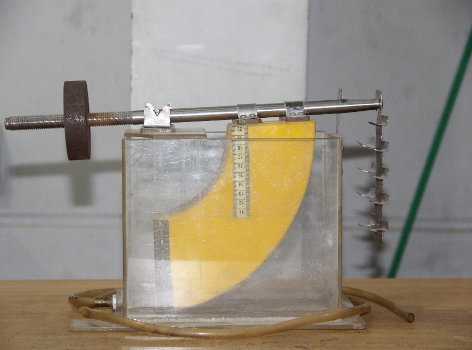
Environmental Engineering Lab
Environmental Engineering plays a leading role in contaminated sediment transport; innovative physical, chemical and biological water and waste water treatment processes; mathematical models for environmental quality management; mixing and transport phenomena of pollutants in natural and man-made systems and water resources management and engineering. The Environmental Engineering Laboratory in Port City International University is fully equipped with modern instrumentation. Physical, Chemical and bacteriological tests of water and wastewater; design of water supply system are available. Sophisticated instrumentation includes a full range of standard equipment for performing routine environmental analyses such as pH, DO, BOD, COD, Hardness, Conductivity, Alkalinity, Bacteriological analyses etc. Numerous complete and functional water and wastewater treatment facilities are available for teaching and research purposes.
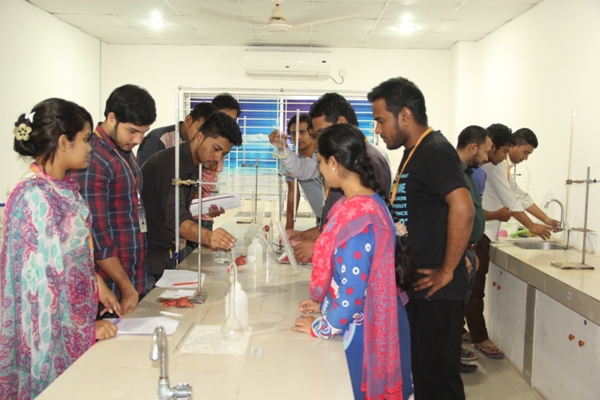
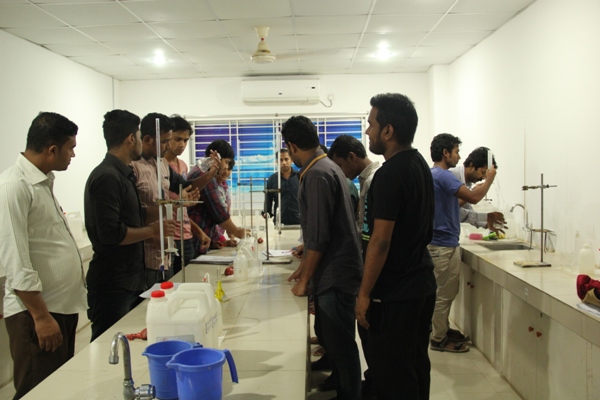
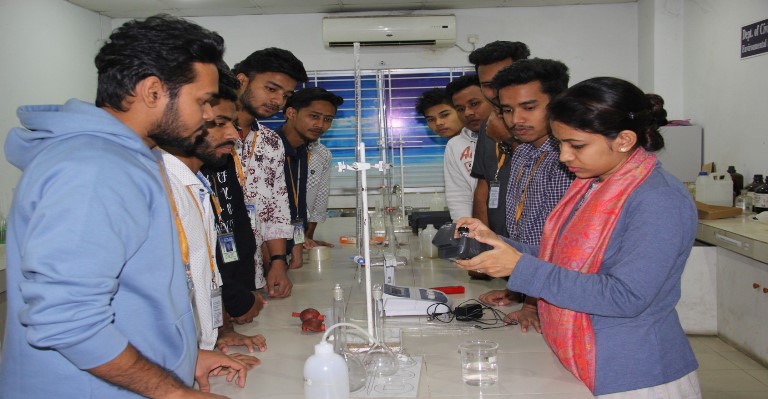
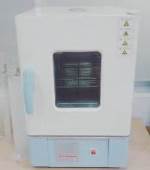
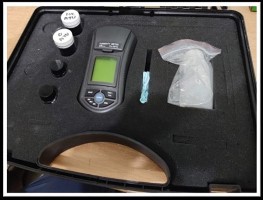
Surveying Lab
Practical Surveying laboratory of the Department of Civil Engineering, Port City International University, continued to provide service of equipment maintenance and production of special surveying accessories in support of teaching & learning and research activities. It contains many conventional and modern surveying instruments like tapes, levels, theodolites, total stations (EDM) accurate and digital levels. Undergraduate students use the laboratory as an integral part of their surveying coursework and obtain any topographic information that can help their design projects, such as highway design and land development. Moreover, students learn techniques about how to gather field data and use them for preparing maps with both traditional and modern instruments on a week-long fields survey program.
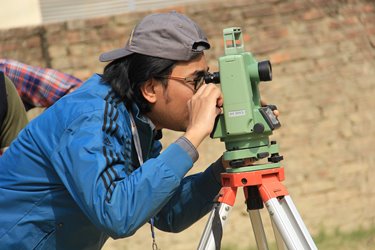
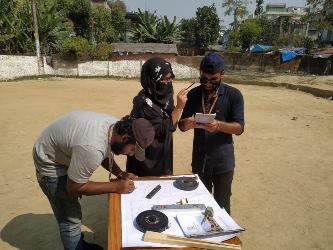
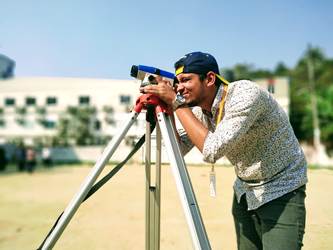
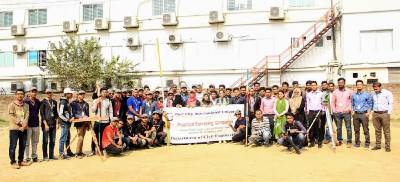
Transportation Engineering Lab
The Transportation Engineering Division has been providing testing, design and consultancy services since its inception in diverse areas including quality control & testing of highway materials, geometric design of highways, structural design of pavements, field investigations of highway projects, traffic control & management, accident analysis and safety measures, feasibility study of transport projects, preparation & evaluation of contractual documents. Highway and transport specialists of this division have experience in highway materials, highway design, maintenance and improvement work, survey works, transport economics, transport planning & modeling, traffic control & management, traffic safety, GIS and simulation works.
Outline: Course work and research provide knowledge and skills in transportation planning and economics, traffic engineering and design of highway and other transportation facilities essential for the implementation of infrastructure projects.
Facilities: The Transportation Engineering Laboratory enables experiments to be conducted for the design of bituminous and concrete pavements. Tests on subgrade, subbase and base materials, bituminous mix design and roadway capacity studies are also available.
Main equipment: Equipment is available for the identification and determination of the properties of bituminous binders and asphalt mixtures. Penetration testing machine, Los Angeles abrasion testing apparatus, Impact testing apparatus, CBR testing apparatus, Ovens of different kinds etc.
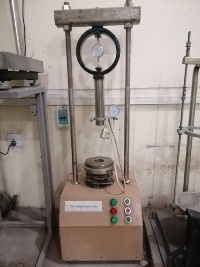
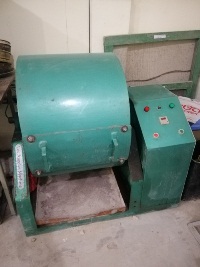
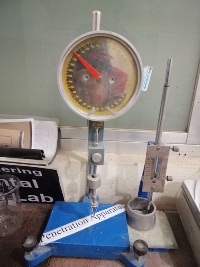
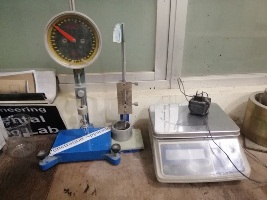
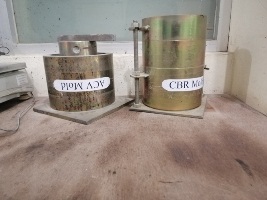
Open Channel Flow Lab
The Open Channel Flow laboratory is situated on the ground floor of the B-building covering an area of 1200 sq. ft. the main objective of this course is to teach the student how to measure discharge in an open channel and also to give an idea about some terms and phenomena of an open channel flow which will be used by them in future in practical field.. At present it is well equipped with Tilting flume, Parshall flume, Venturi flume, , sluice gate, broad crested weir to carry out experiments like Determination of state of flow and critical depth in open channel, Flow over a broad-crested weir, Flow through a Venturi flume, Flow through a Parshall flume Flow beneath a sluice gate, Study on hydraulic jump, Development of generalized specific energy and specific force curves, Velocity distribution in open channel, Determination of discharge and mean velocity of an open channel.
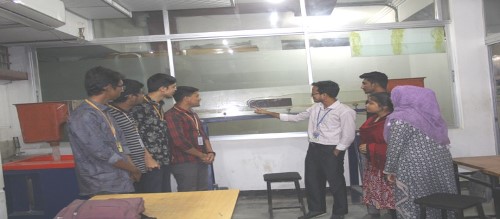
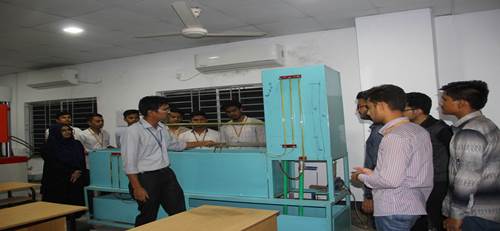
Structural Mechanics Lab
The laboratory is housed on the ground floor of the C Building at PCIU campus. This is the structural engineering testing facility equipped with modern testing machines and equipment. Routine strength tests of various materials like steel, timber, plastic, rubber etc. are carried out in the Structures and Materials Laboratory as per the relevant standards. On-site nondestructive strength evaluation is also conducted. Test facilities include tests on general properties of concrete, tests for specific gravity, unit weight, moisture content, absorption of coarse and fine aggregate, FM of coarse and fine aggregate, different tests on brick mortar and cement, direct tensile and compressive strength of cement mortar, tests on stress strain and mechanical properties of materials: tension, direct shear and impact tests of mild steel specimens, slender column tests, static bending tests, hardness tests of metals, torsional tests of different types of materials, helical spring tests. Some of the testing machines include one universal testing machine, impact testing machine, compression testing machine for beams, column buckling test frame, hardness tester machine etc. A few of the many tests carried out in this lab are tension test including wt. and elongation, bend test, HT wire tension test, impact test, prestressing wire and anchorage test, hydraulic jack testing and calibration.
Irrigation & Flood Control Lab
This page is under-construction
